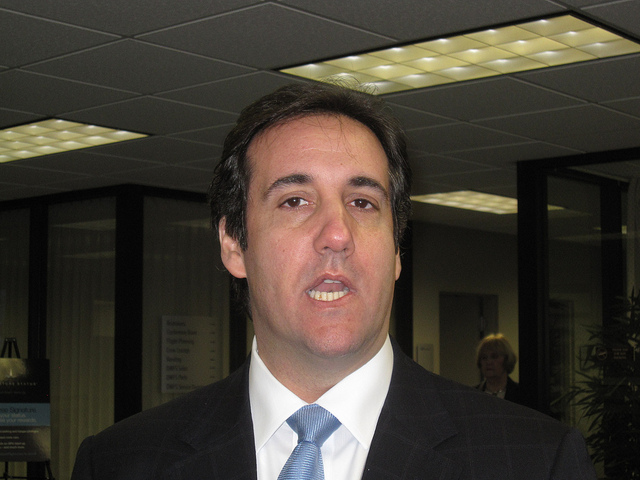Michael Cohen’s Testimony: Can Felons Be Credible Witnesses?
Michael Cohen, Donald Trump’s former attorney, testified publicly under oath before Congress on February 27, 2019. During his testimony, Cohen implicated the President in numerous lies and illegal actions while admitting his own participation in crimes. Republicans defending the President have claimed that Cohen is an untrustworthy witness because he is a felon and a disbarred ex-attorney. Cohen is scheduled to return to Capitol Hill on March 6, 2019 for a second hearing.
Michael Cohen’s Long and Winding Road
Michael Cohen first began working for the Trump Organization in 2006. He quickly became a close confidant for the future President and often represented Trump in various actions, including an alleged defamatory action against the Onion in 2013. Cohen often appeared on television networks on behalf of the Trump campaign during the 2016 elections.
During this time, Cohen also paid off Stormy Daniels and other women with campaign money in exchange for their silence regarding several affairs they had Mr. Trump. Cohen set up Essential Consultants L.L.C. to conceal the payments, though he committed bank fraud in the process.
In April 2018, The Justice Department ordered an FBI raid of Cohen’s law offices. Among the recovered evidence were several audio tapes of conversations that Michael Cohen had with Mr. Trump. Evidence gathered by other investigations show that Mr. Cohen had met with Ukrainian and Russian officials in January 2017.
In August 2018, Cohen surrendered to the FBI and pleaded guilty to bank fraud, tax evasion, and campaign finance violations. New York State disbarred him as a result of these guilty pleas. In December 2019, the Court sentenced Cohen to three years in federal prison. After Democrats took back the House of Representatives in 2019, Michael Cohen was named as a witness in their own separate investigations regarding potential Russian interference in the 2016 elections.
 Can Criminals Be Credible?
Can Criminals Be Credible?
One of the dominant issues with witness testimony is their credibility. Witness credibility is typically a jury issue, but judges serve as gatekeepers by removing irrelevant and/or prejudicial testimony. States differ on whether a guilty verdict or a guilty plea is relevant or prejudicial. In California for instance, crimes that show a witness lacks “moral turpitude” can be admissible as evidence against their credibility.
In federal courts, crimes are only admissible against a witness if the crime was punishable by death or imprisonment for more than a year. Although Federal Rule 609 does not explicitly mention felonies, most felonies will fall under the definition of a crime that was punishable by death or imprisonment for more than a year. Additionally, the role of the witness in the case matters.
If the witness is not a defendant to the case, the Court must weigh whether the evidence of the conviction is relevant. If the witness is a defendant, the relevancy test is not applicable. However, if the crime involves a “dishonest act or false statement,” then the conviction must be admitted regardless of the punishment or the witness’s role in the case.
Most of the charges Cohen pleaded guilty to involve a “dishonest act or false statement.” Bank fraud, campaign fraud, and making false statements are all crimes that implicate Cohen’s ability to testimony with credibility. Although Cohen committed these crimes on behalf of his former client, they still raise doubt about the reliability of his testimony.
The guilty plea is relevant, as the crimes he committed and the false statements he made were about the crimes he is now testifying about. There is also no prejudicial effect in admitting the plea against Cohen. The case is widely publicized and the consequences for the nation are larger than any reputation or privacy concerns Cohen may have.
Although Cohen’s guilty plea can always be used against him in any cases he testifies as a witness as, it is ultimately up to a jury to decide whether to believe him. Michael Cohen has admitted to a federal court that he lied to banks and prosecutors when he was legally required to be honest. Juries may dismiss his testimony as a lie based on this plea.
On the other hand, if Cohen presents other evidence, such as e-mails, letters, or checks, then perhaps Cohen is telling the truth now. As mentioned, it is the jury’s responsibility to decide whether he is being honest or not.
Does a Pardon Impact Credibility?
Finally, Federal Rule 609(c) controls the effects of a pardon on the evidence. If a witness has been pardoned, evidence of a conviction is not admissible in court. A guilty plea cannot be used against a witness if the witness has been pardoned.
In the Trump cases, pardoning Michael Cohen would be a significant misstep on the part of the White House. If Cohen were pardoned, the guilty plea would no longer hold be admissible if Cohen were to testify against Trump’s other associates or against the President himself.
A pardon on Manafort would potentially be beneficial for the defense as Manafort could deny that the Trump campaign was involved in anything illegal without the prosecution’s ability to use his conviction against him.


Comments